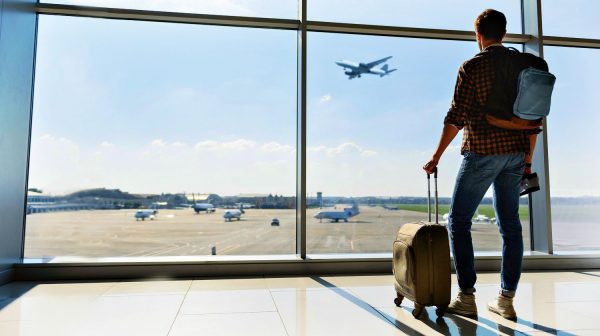CHIANG MAI, 18 June 2019: I am looking at a press release from the Thailand Convention and Exhibition Bureau on progress made delivering an ASEAN standard to govern MICE venue quality across the region.
Line notifications interrupt. They are intrusive but I know they are about standards, or more precisely an alleged lack of them in adventure travel activities.
Messages focus on the 13 April accident at the Flight of the Gibbon in Chiang Mai that resulted in the death of the 25-year old Spencer Donaldson. To this day, there is an absence of clarity regarding the tragic accident. The investigation report and its findings are not in the public domain. We are left to speculate where the fault lies. That should not be happening in a country that claims to be a world-class destination.

A professional investigation report would study the evidence and reach a conclusion on whether negligence caused the accident. That apparently has not happened.
It is quite remarkable that the travel economy that singularly delivers 20% of GDP fails to recognise the impact a poor safety ranking has on the country in the long run.
We have to assume there is an official investigation report as the Flight of the Gibbon reopened for business two weeks ago. It has gained clearance from the authorities, but will the findings be made public and demonstrate that authorities do take duty-of-care seriously?
In Phuket last July, 33 Chinese tourists died when their boat capsized and sank in a storm. Rescue teams retrieved the bodies and teams salvaged the wreck. It stands in a dry dock a monument to failed safety governance. Again, has an investigation report been published? Is there a channel of public disclosure and transparency to bring closure when a tragedy takes the life of a tourist?
Thailand’s travel industry is a leader setting the scene for a standard to ensure quality in ASEAN’s events business. There are other successful standards that we can quote and applaud Thailand for its contribution. Hotels are star-rated through a comprehensive process based on a standard.
But when you turn to adventure travel the best we can hope for is an affiliation with an international association in the US that provides safety guidelines and a certification programme for inspectors.
Isn’t that a signal or warning that something is not quite right? We should be able to create a safety standard and train inspectors locally to ensure compliance with globally recognised safety standards.
We understand the need for maintaining the highest standards in aviation. Thailand moved up the ICAO ranking and achieved a green flag for compliance after suffering the humiliation of a warning red flag two years earlier.
But when it comes to tour buses, tourist boats and adventure attractions we drop the ball completely. It’s like the welfare and lives of bus or tour ferry travellers belong to a lower duty-of-care domain.
Zip lines would fall into that same lowly domain. They are one of the most popular adventure travel activities in Thailand, yet the authorities so far have failed to establish safety standards that could ultimately save lives.
Flight of the Gibbon is the spotlight for the 13 April fatality and other serious accidents dating back to 2015, but reality suggests hundreds of zip line attractions would be found wanting if an independent inspection by qualified engineers was mandatory on an annual basis. Inspectors would probably conclude staff lacked training, while calculated risks taken to keep guests moving efficiently through a ride could one day trigger a tragic accident.
A zip line accident in 2015 seriously injured Lisa Sayre. She suffered a bone-shattering collision with another zip liner who had rolled back just short of a stage platform. Lisa lost her sight in one eye, survived traumatic life-threatening injuries and then suffered a post-accident stroke.
Since then, families have reached out to the Ministry of Tourism and Sports to ask for action and to recognise there is a need for change and improvements in safety standards at zip line attractions. Lobbying for change with the ministry is a core part of the Donaldson family’s campaign..
Yet to this day no firm action has been taken to clearly introduce effective standards to reduce the risk of accidents when zip lining in Thailand. Ministry officials are silent and the travel industry largely unaware of the gravity of the injuries that zip line rides have inflicted over the years.
TripAdvisor currently posts a message saying zip lining in Thailand is no longer bookable through its site, while numerous tour operators with offices in Bangkok have told TTR Weekly they have removed zip lining off their tour options for clients “for the time being.”
While that shows tour companies are prepared to look after the welfare of travellers in their care, the issue goes far beyond the private sector.
The buck stops at the door of the Ministry of Tourism and Sports. It has to lead the campaign for better safety standards enforced nation-wide. Accredited and independent inspectors should lead investigation teams assigned to adventure travel accidents. Investigation reports should always be available in the public domain.
Once you read the extent of the injuries and the traumatic experience accident survivors are forced to live with for the rest of their lives you can only conclude that adventure travel in Thailand needs to be strictly governed.






